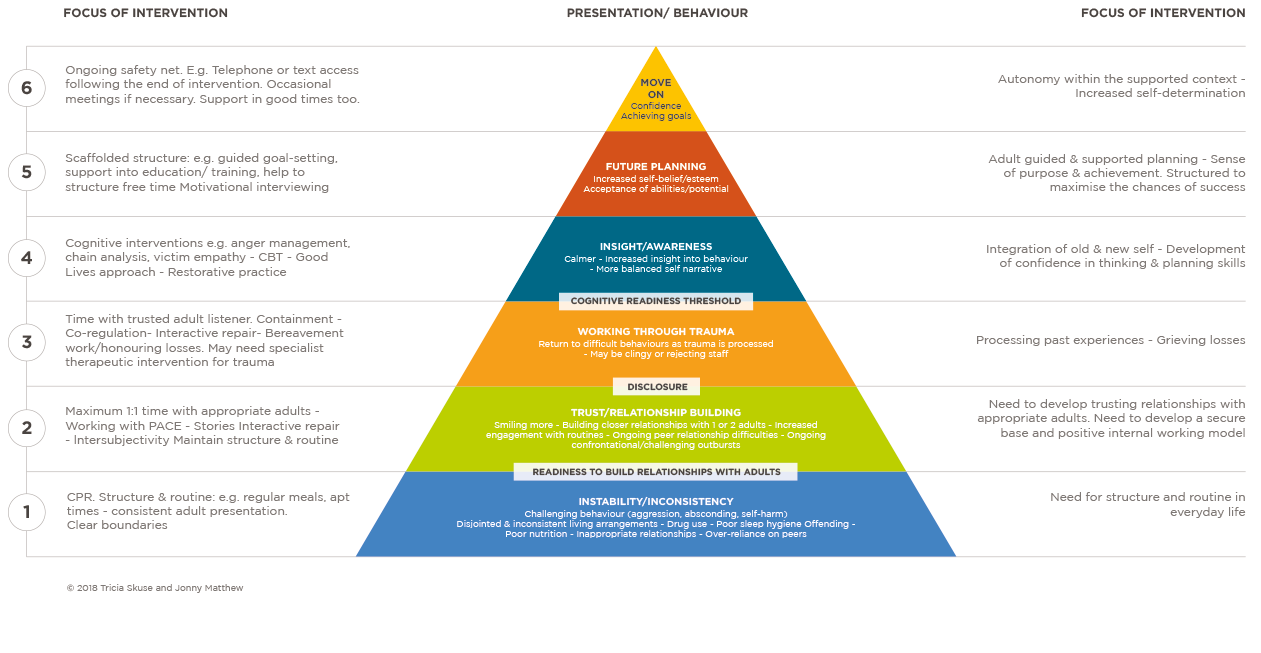the trauma recovery model
The Trauma Recovery Model (TRM) is a road map to help professionals care for and guide troubled people towards recovery. It's a composite model; combining theories of child development, attachment and neuroscience with hands on practitioner skills. It provides practical guidelines for knowing which interventions to use and when. This means practitioners understand the psychological needs that underpin behaviours and can identify the types of interventions that best address those needs.
Using the TRM in our practice puts relationship building and therapeutic interaction first, mediating the impact of trauma. This also links clearly to PIE principles. This paves the way for interventions and ways of workings that are tailored and sequenced in a way that really can make a difference.
The TRM was developed by Jonny Matthew and Tricia Skuse, based on their experience of practice in a secure children’s home. The TRM has been tested and trialled successfully with children and young people in the criminal justice system in Wales.
1625 Independent People also piloted the model with care leavers in 2019 through their Future 4 Me project, an innovative project that provided specialist support to young people leaving care, leaving custody or young people who are at risk of entering custody.

The trauma recovery mode: a pilot
The model provides a simple tool to assess a young person’s presentation – their characteristic behaviours. It links these to the underlying psychological need driving this behaviour, shown on the right of the triangle, and the interventions that will best address this need, shown on the left of the triangle.
The evaluation of the Future 4 Me TRM pilot with care leavers found that overall, the model was experienced as “useful and accessible” and helped practitioners “to develop a greater understanding of [young people’s] lives”.
Learn More
TRAUMA INFORMED ACCOMMODATION
High support accommodation for young people is often offered through a hostel model. Hostel provision varies greatly from place to place, but typically comprises a number of accommodation units grouped together, with varying configurations of private and shared spaces, typically including some staff working on site at least part of the time. A perceived benefit of this model is the economy of scale it offers. However, even in hostels with small numbers of units (and where these might be self-contained flats), it is recognised that grouping young people with sometimes very different support needs together in this way can create its own challenges.
Read more
Domestic Violence and sexual abuse
The Salus Project (2020-2021) funded by Homeless Link, explored trauma informed ways of working with young women at the intersection of homelessness, domestic violence and sexual abuse. Prevalence of domestic and sexual violence and abuse in young women aged 16- 24 is high, and yet there are few services which specifically target this age group. In partnership with local providers of statutory support, the Salus Project provided direct support for young women, coaching support for keyworkers, and a programme of training for professionals.
Learn More